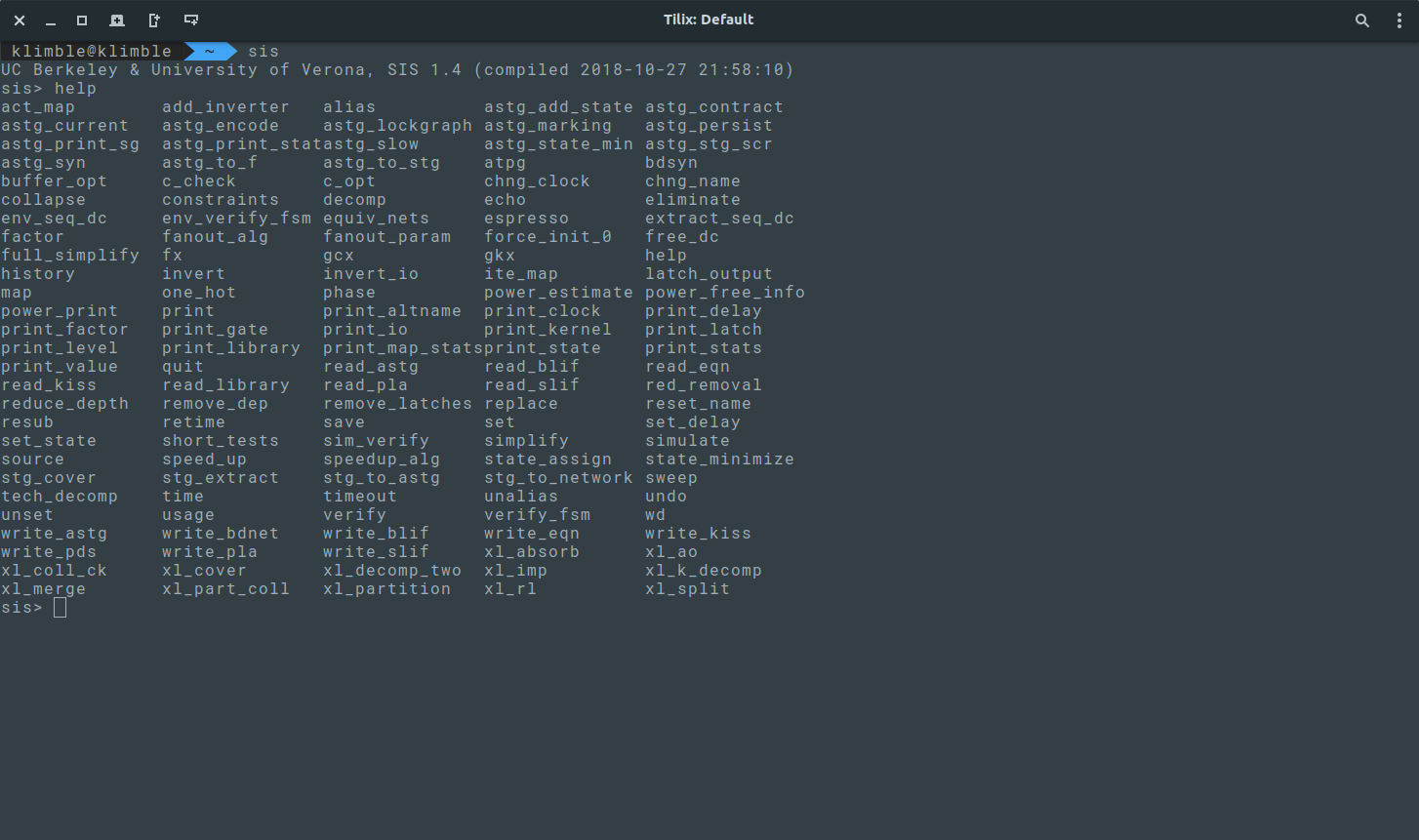SIS
SIS is an interactive tool for synthesis and optimization of sequential circuits. Given a state transition table, a signal transition graph, or a logic-level description of a sequential circuit, it produces an optimized net-list in the target technology while preserving the sequential input-output behavior. Many different programs and algorithms have been integrated into SIS, allowing the user to choose among a variety of techniques at each stage of the process. SIS serves as both a framework within which various algorithms can be tested and compared, and as a tool for automatic synthesis and optimization of sequential circuits.
Here you'll find two different version of SIS:
- Version 1.4, released in 2018, that contains a refactored version of the software
- Version 1.3, released in 2005, which was the last version of the original software

Downloads
Available packages for version 1.4:
The source code is available in both tarball and zip:
Download source (.tar.gz) Download source (.zip)
If you use a Debian-based distribution like Ubuntu, download the .deb file and install it, either through GDebi or simply using dpkg:
sudo dpkg -i sis_1.4-1-amd64.debVersion 1.4 should also compile just fine, just make sure you installed the correct dependencies:
sudo apt install -y make gcc bison flex build-essentialand then run:
./configure prefix=/usr/local
make
sudo make installThe compilation was tested under Ubuntu 18.04 64-bit.
Available packages for version 1.3:
Download Debian package Download binary tarball
The binary version contains a static linked binary, for compatibility reasons.
The source code is available in both tarball and zip:
Download source (.tar.gz) Download source (.zip)
The command for installing the .deb package is the same as version 1.4:
sudo dpkg -i sis_1.3.6-1-amd64.deb
If you download the static linked archive, run the script available in the archive for installing (or uninstalling) the software.
If you download the source tarball, be aware that the 1.3.6 version might not compile on your machine.
Before compiling it, make sure that you have the correct dependencies:
sudo apt install -y make gcc bison flex build-essentialThen configure it for using GNU90 GCC standard:
export CFLAGS=-std=gnu90
./configure prefix=/usr/local --without-x
make
sudo make installDocumentation
A full user manual for SIS is available at this link.
Tutorials
You can find a set of tutorials for learning SIS basic usage.